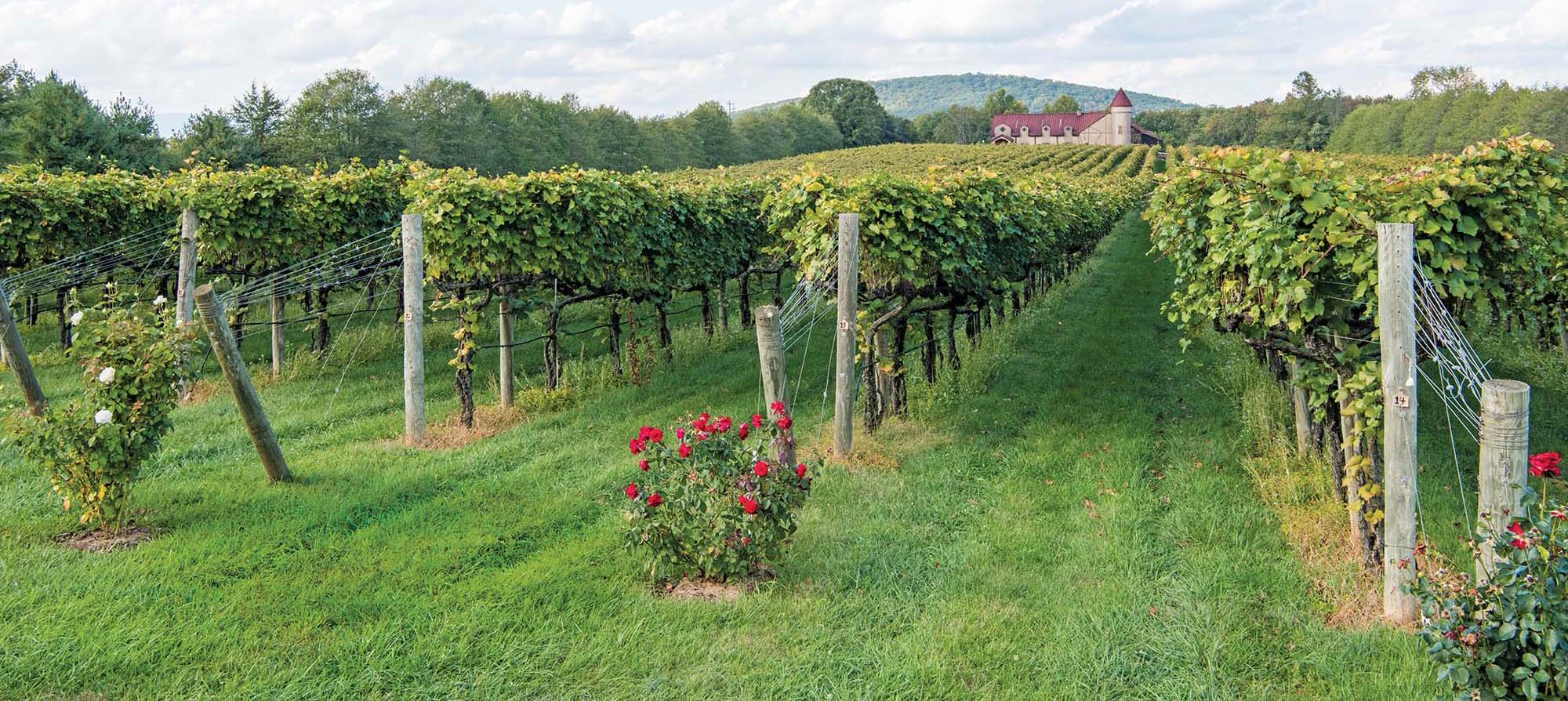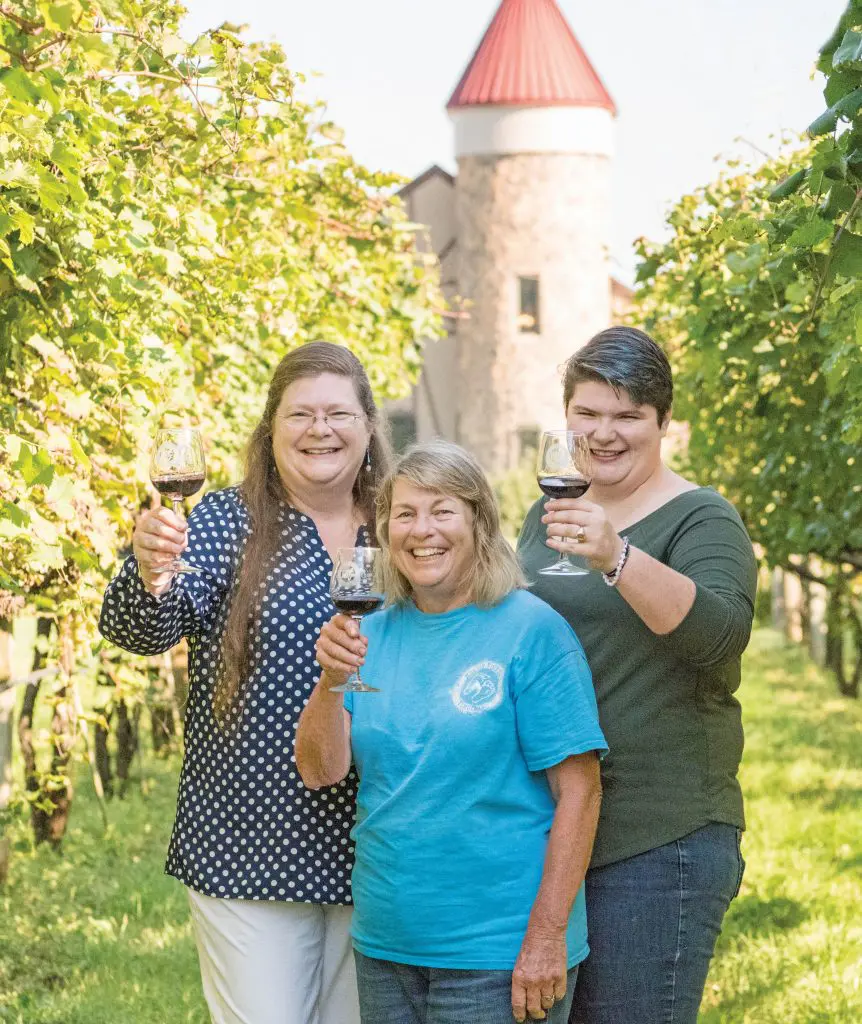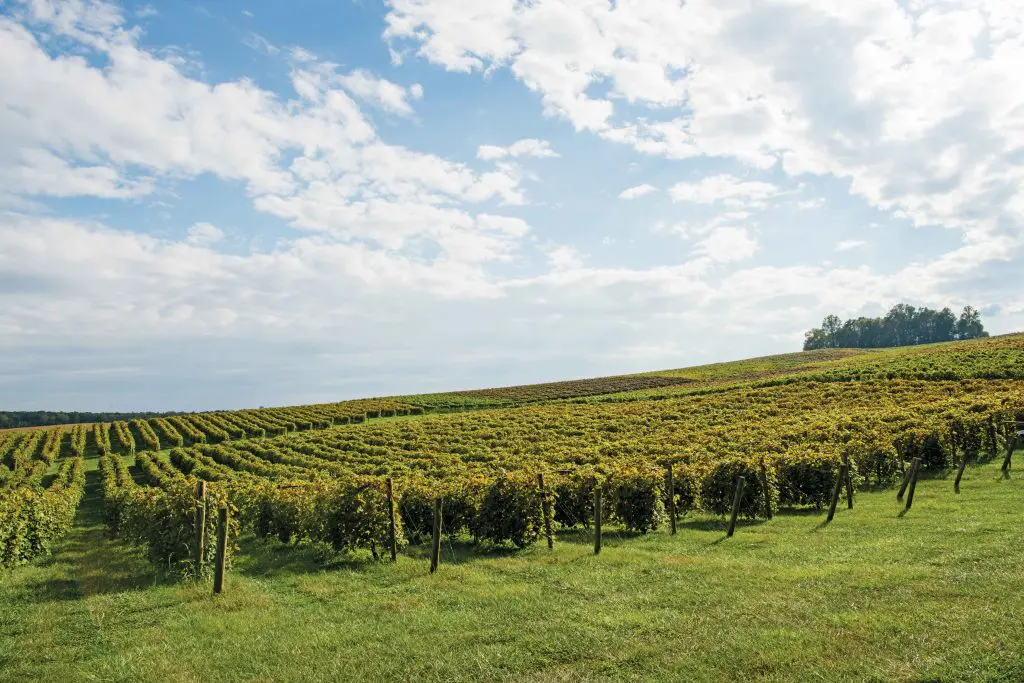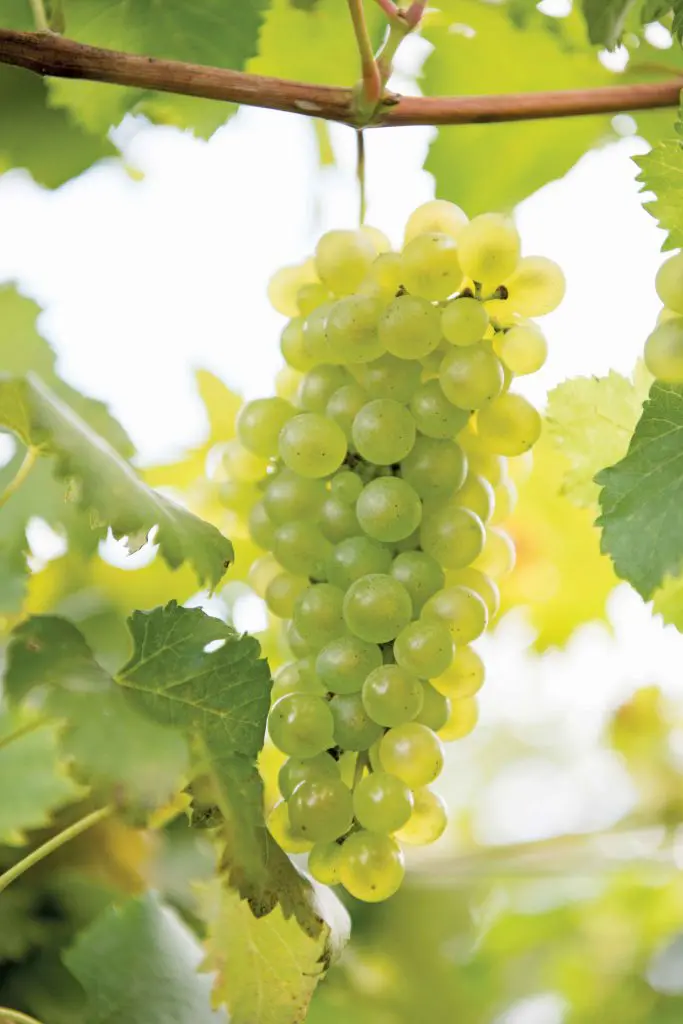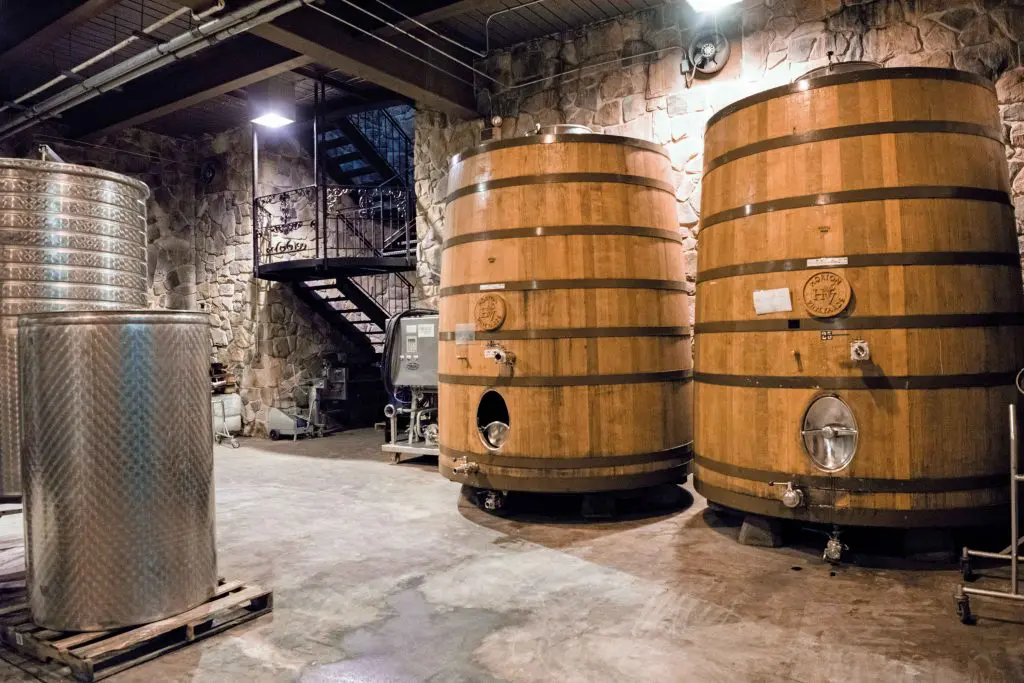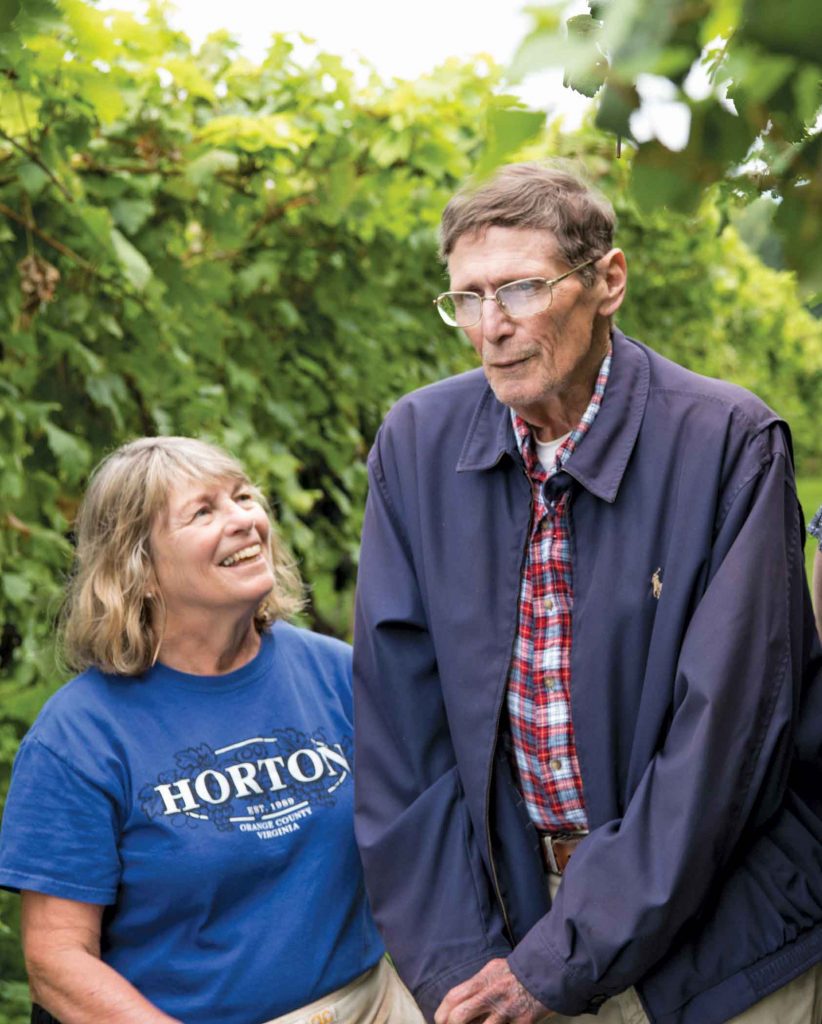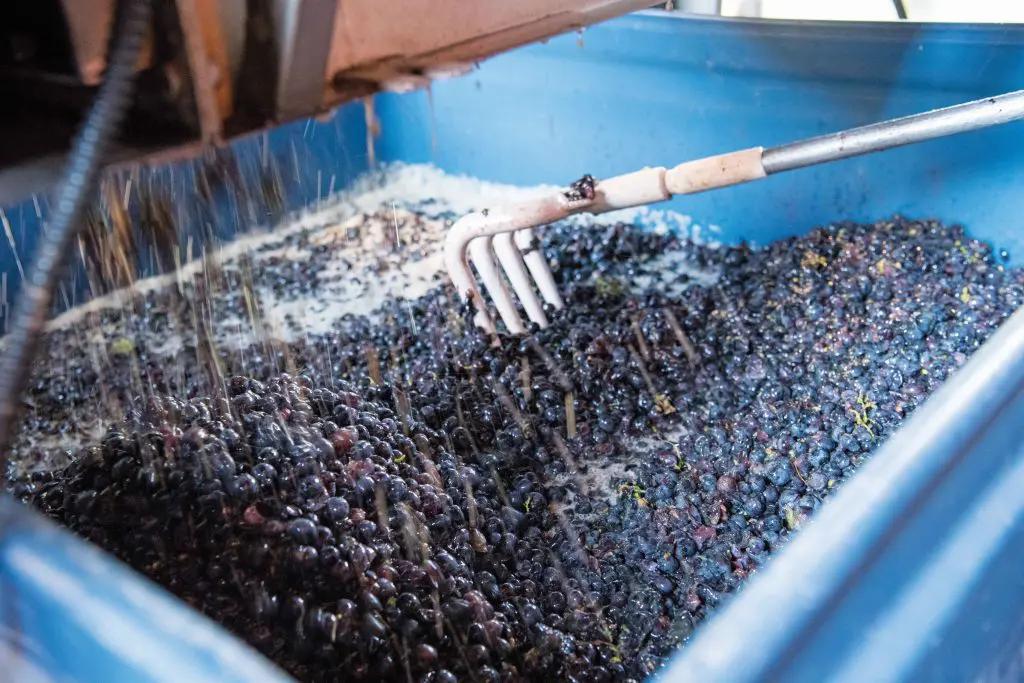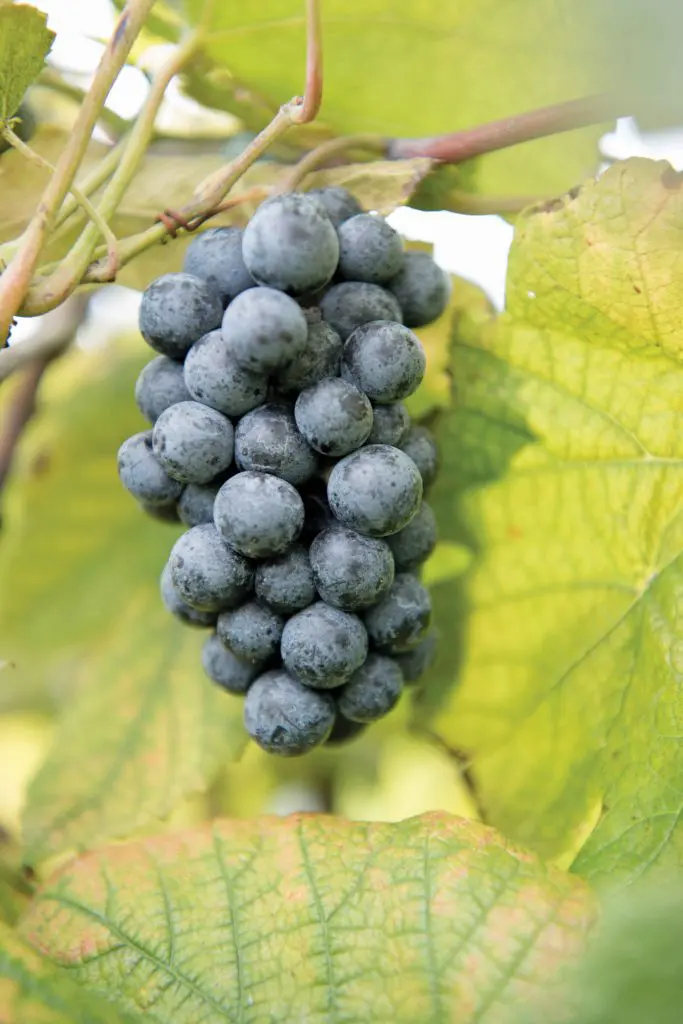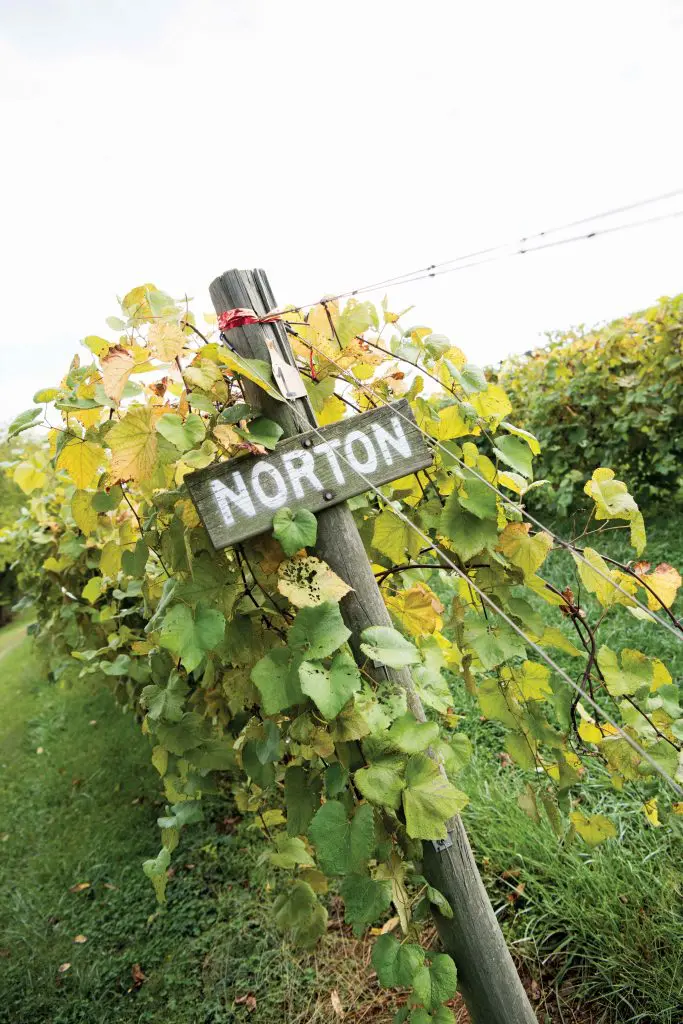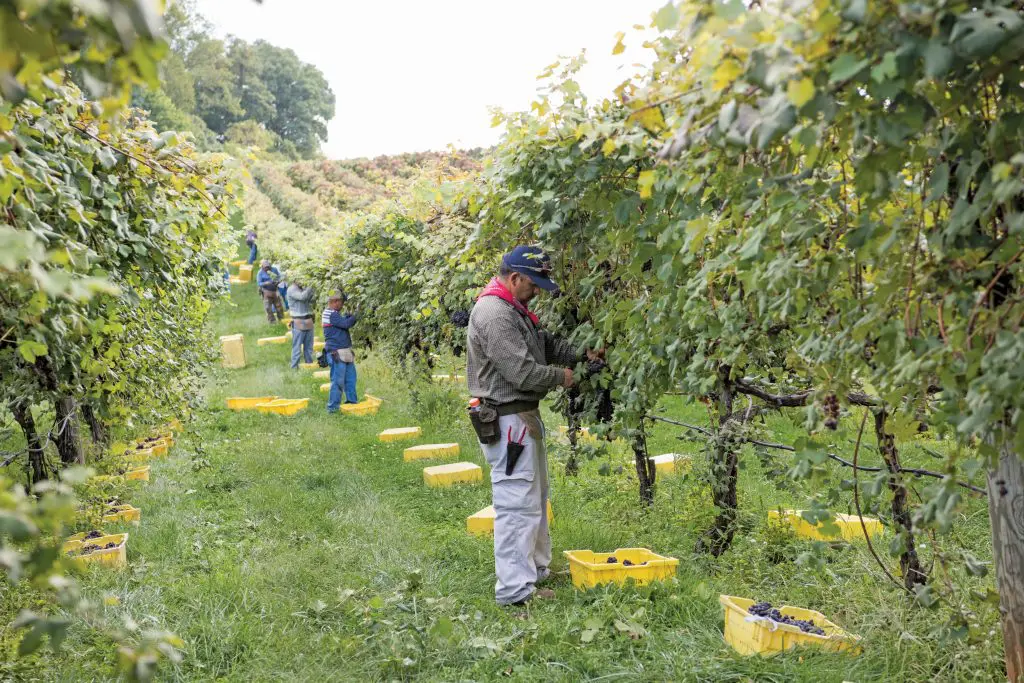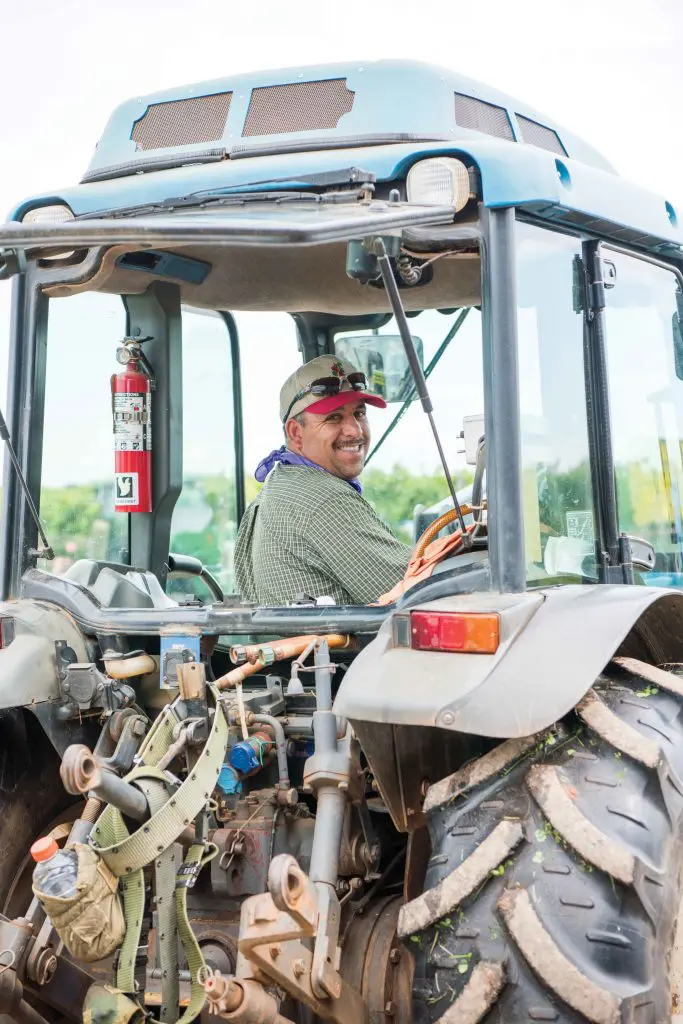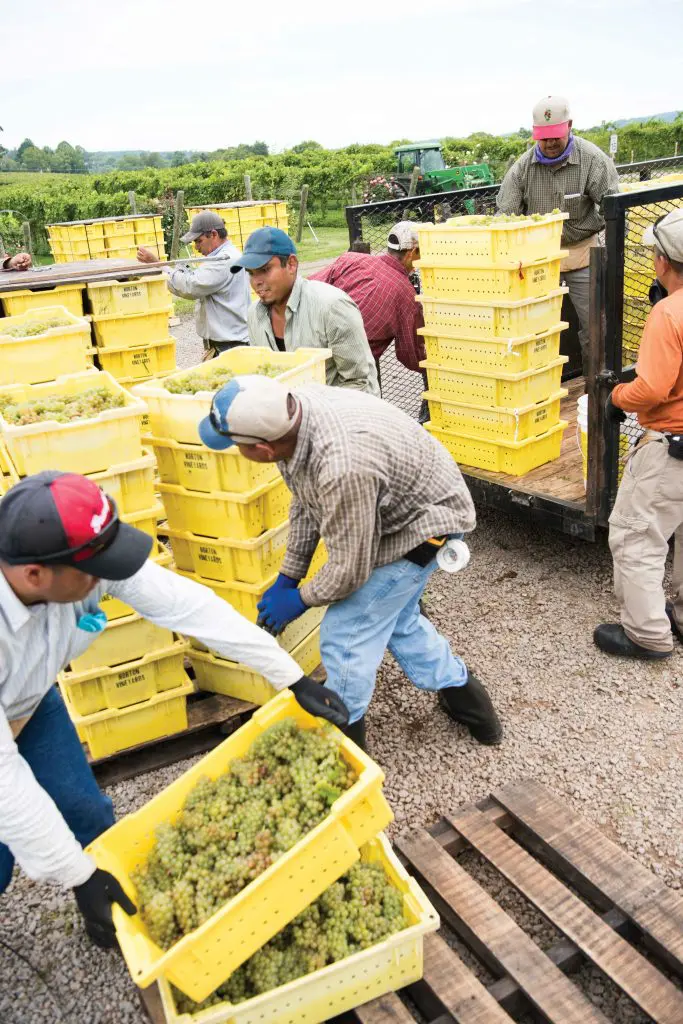As you approach Horton Vineyards, you are struck with pure admiration for the work and passion of this humble wine-loving family. Identified as having greatly influenced the wine landscape of Jefferson’s Virginia, the Hortons helped jumpstart the area’s direction by planting the first Viognier and Norton grapes.
“It all started from my husband’s dream to grow grapes,” says Sharon Horton. “After moving to Virginia, he saw the potential in the area to grow certain kinds of vinifera varietals.”
From that point on, Dennis Horton was determined to produce quality wine. “We wanted to start a winery and knew we had to have the right kinds of grapes to do so—ones that would give us consistent quality year after year,” Sharon shares.
The Best Wine Grapes for Virginia
In Virginia’s often humid, ripening climate, sturdy grapes (thick skins) with natural airflow (loose clusters) tend to do best. The Hortons hunted for grape varieties that might suit the climate. In the midst of their adventures, they travelled to the Rhône Valley and found a Viognier from Château Grillet that deeply impressed them. Approximately two centuries earlier in 1787, Thomas Jefferson visited Château Grillet and found the wines equally impressive.
How Horton Vineyards Started
In 1983, Sharon and her late husband, Dennis, planted a hobby vineyard in Madison County. Dennis, a Missouri native, had enjoyed a successful career in business, while Sharon worked as a nurse. When Dennis planted their first vineyard, it inspired an intense desire for something larger—a commercial vineyard that would help anchor Virginia’s wine industry.
With his eye on the future of Viognier in Virginia, Dennis, who served as winemaker, and his business partner Joan Bieda planted a commercial vineyard in Orange County; and Horton Vineyards produced their first wine in 1991 at nearby winery, Montdomaine. After completing construction of the Horton Vineyards production and tasting room facility, which featured an underground winery, they crushed their first wines on site in 1993.
Success with Viognier in Virginia
This same year, the Hortons gained national recognition when their Viognier won first place at a California tasting competition, changing the course of winemaking in Virginia. In a 2015 interview, Dennis called 1993 “one of the great years. The ’93 Viognier put Horton and Virginia wine on the map.” In addition to their wines receiving numerous awards and acknowledgements over the years, Dennis was awarded the Gordon W. Murchie Lifetime Achievement Award in 2011, an award named after Gordon Murchie for his accomplishments and storied career in promoting the Virginia and Eastern U.S. wine industry.
Many who helped with those early Viognier vintages would go on to make wine at other wineries and shape the early formation of Virginia’s current wine scene. Winemaking consultant Brad McCarthy worked with Dennis in the ’90s and recalls smelling those first tanks of Viognier, which were “fantastic.” Horton Vineyards 1993 Viognier captivated the local wine scene, garnered attention around the globe, and would ultimately lead to Viognier becoming the official “Signature Grape of Virginia” in 2011. The Horton Viognier, in both still and sparkling versions, has been a popular staple for Horton Vineyards ever since.
Horton Vineyards 1993 Viognier captivated the local wine scene, garnered attention around the globe, and would ultimately lead to Viognier becoming the official “Signature Grape of Virginia” in 2011.
Dennis and Sharon brought many other grape varieties to Virginia, some failed but others have since flourished. A few of the winners included Cabernet Franc, Tannat, Rkatsiteli and Norton. Grape varieties like Albariño and Petit Manseng did well at Horton, and many local wineries experimented with the grapes before taking the plunge to plant their own vineyards. Today, we see growth in plantings of both of these grapes throughout the state.
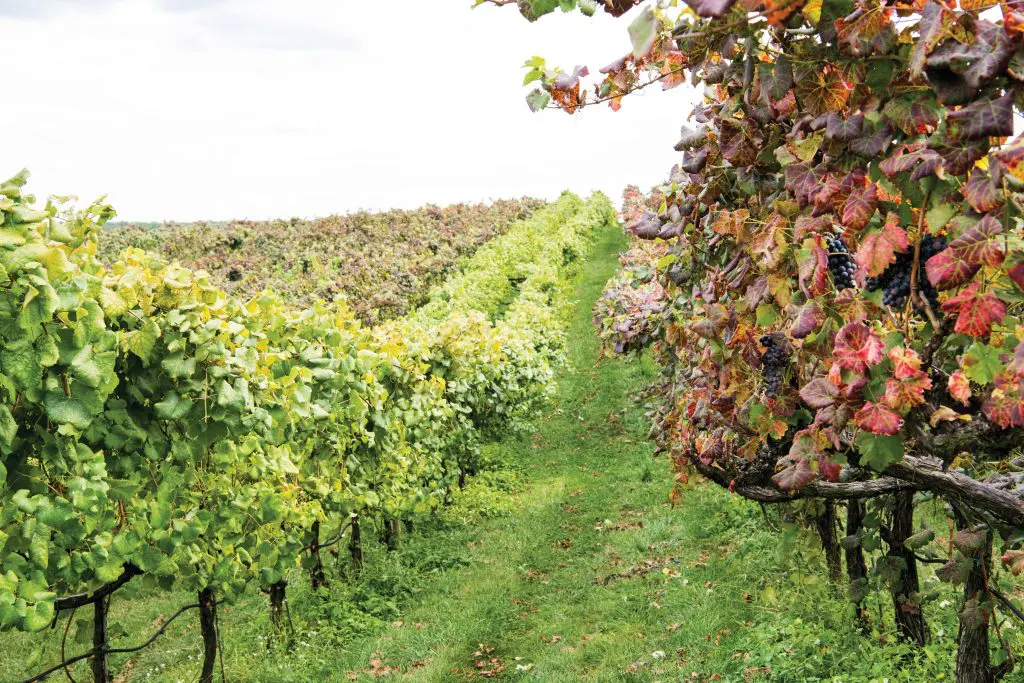
Most Notable Virginia Wines at Horton Vineyards
Cabernet Franc has grown into an extremely important role in Virginia. Horton’s Cabernet Franc has been a staple glass pour at local Charlottesville restaurants, and a solid go-to wine at retail shops. It can be said that early experiments with Horton Cabernet Franc helped other winemakers hone in on proper clones, sources and rootstocks.
In fact, most wine vines throughout the world are fruit-producing European species grafted onto American rootstocks, because native rootstocks are immune to phylloxera, an aphid-like soil pest that can destroy European grape vine species. And though native American grapes like Scuppernong, Norton and Delaware were famous for wine production in the 1800s, they fell out of favor after Prohibition. Today, they are used mostly as rootstocks, although a movement to promote native species is well under way.
A central theme in the legacy of Horton Vineyards is the tale of the Norton grape, a grape native to Virginia since its first emergence in the 1820s. Dennis (at left) had noticed some old-vine Norton growing at Stone Hill Winery in his hometown in Missouri, where it has for decades enjoyed a quiet popularity among the local communities.
When Dennis discovered Norton was originally from Virginia, he decided to reintroduce the grape to Virginia’s wine scene. As he would say, “It was a no brainer.”
Horton Vineyards touched off a local pride for Norton that spread fervor for the grape throughout the state and could be pointed to as an early motivator in today’s movement to revive native American species, with Chrysalis Vineyard at The Ag District having the largest single vineyard planting.
Tannat, a rich, high-tannin grape, also got a powerful start at Horton before becoming a go-to grape variety for some of today’s Virginia winemakers.
Horton Vineyards has long been an important Virginia incubator of ideas, grape varieties and winemaking talent, and strives to continue to help lead the way into the future. With 67 acres of vines dedicated to 18 different varietals, the winery crafts a total of 45 vintages. Horton has been leading the way in the wine industry with their use of oak upright tanks and an open lyre trellis system since the beginning.
“Our learning came from many different experiences,” Sharon says. “But the bulk of information, like what grapes to plant, was self-taught through reading, research and a lot of trial and error.”
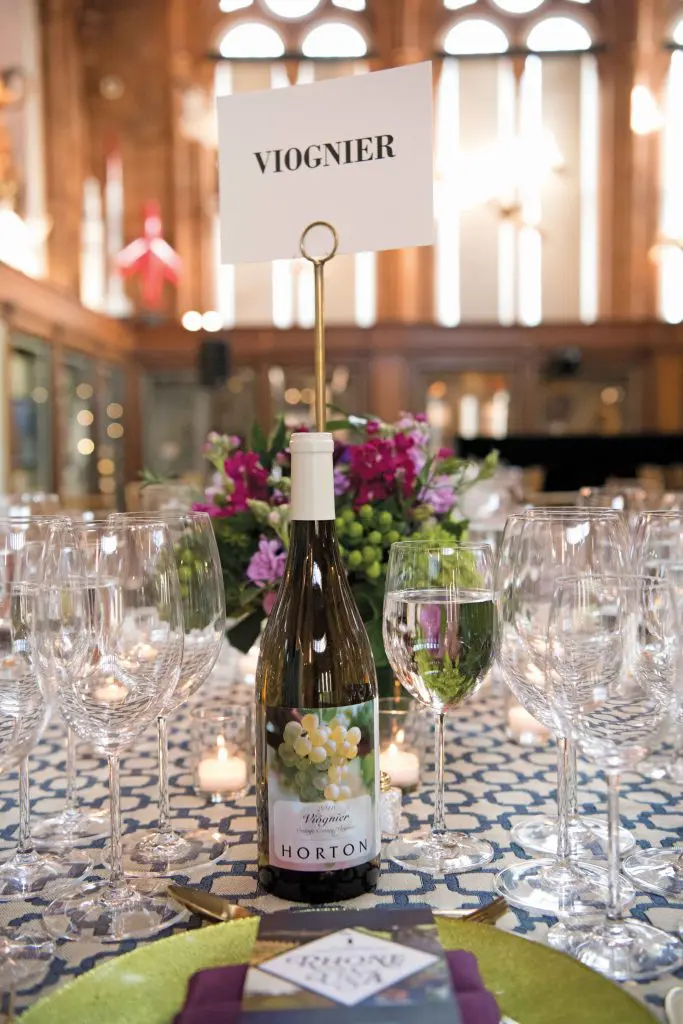
In 2018 during the time of Dennis’s passing, mother-daughter-granddaughter trio, Sharon, Shannon and Caitlin, continued to work towards a family dream and were featured at the Smithsonian’s National Museum of American History’s Winemakers’ Dinner, an annual fundraiser for the museum’s American Food and Wine History Project. The Winemakers’ Dinner followed an informal seminar held the previous day with Randall Grahm, owner and winemaker of Bonny Doon Vineyard, Doug Margerum, owner and director of Margerum Wine Company, Shannon Horton of Horton Vineyards, Tony Wolf, director and professor of viticulture at Virginia Tech and Dave McIntyre of The Washington Post.
In 2019, they went on to win the Virginia Governor’s Cup for their 2016 Petit Manseng.
As Dennis often said to his daughter, Shannon, “Keep swinging for the fences. No matter what you do, put in 200 percent.” And in doing so, the inventive spirit at Horton Vineyards, the willingness to fail paired with a greater will to succeed, and the open-mindedness towards outside-of-the-box grapes like Norton, will continue to forever forge a deep legacy in Virginia’s wine story. ~
, a wine writer and Richmond native, recalls harvesting Virginia grapes in her earliest memories. She owns In Vino Veritas Fine Wines in Keswick, writes the thinking-drinking.com wine blog, and contributes to the wine podcast “I’ll Drink to That.”

